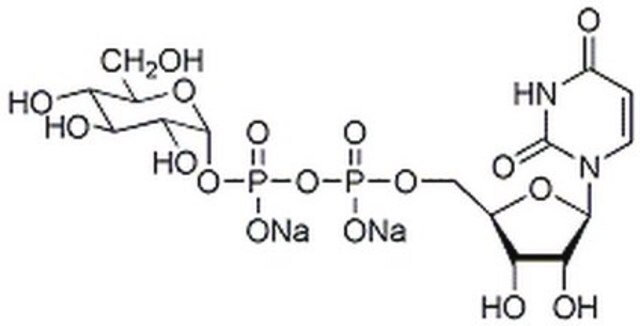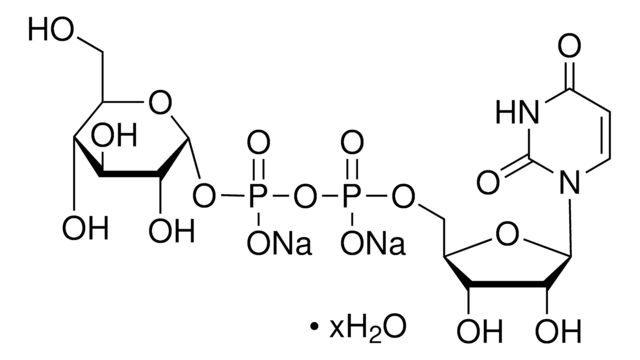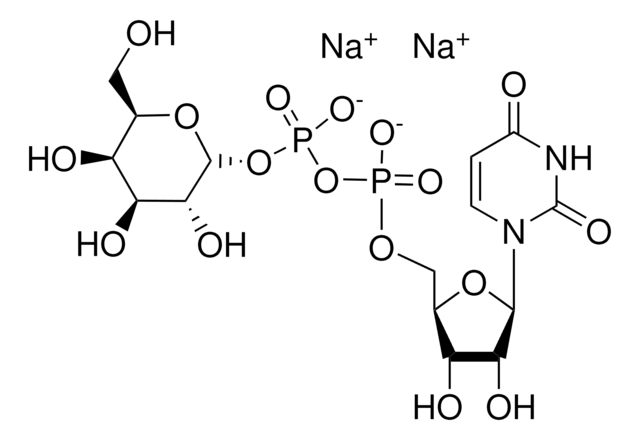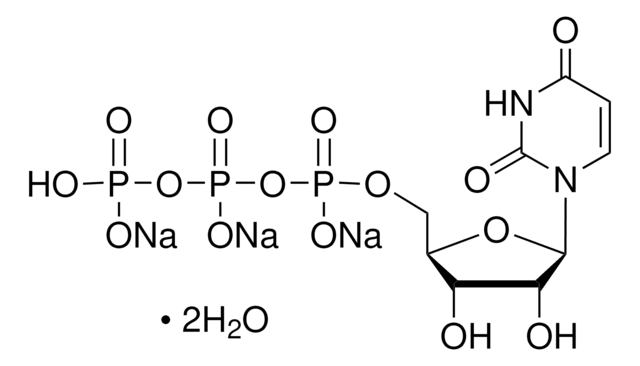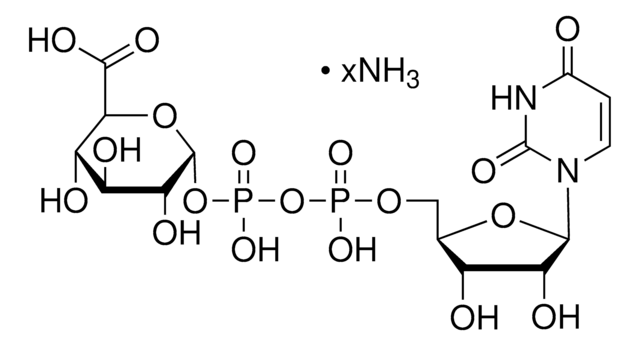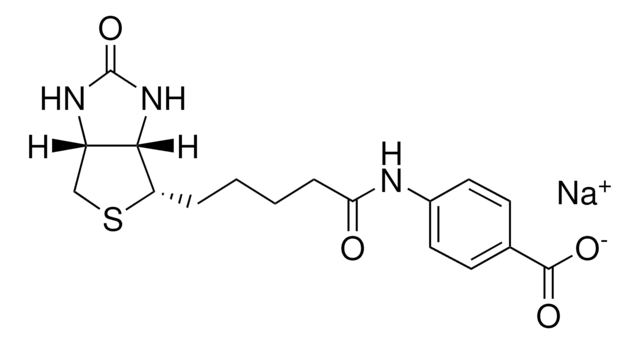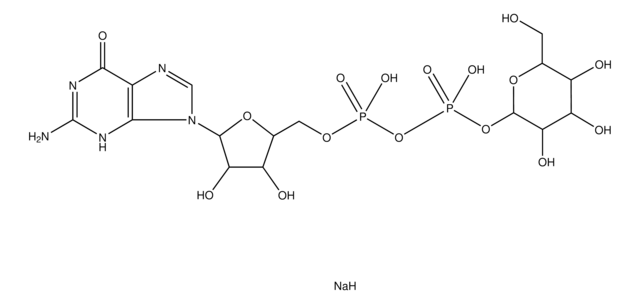94335
Uridine 5′-diphosphoglucose disodium salt
≥98.0% (HPLC)
Sinónimos:
UDP-D-Glucose disodium salt, UDPG, UDP-glc, Uridine-diphosphate-glucose disodium salt, Uridine[5’]diphospho[1]-α-D-glucopyranose disodium salt
About This Item
Productos recomendados
biological source
Saccharomyces cerevisiae
assay
≥98.0% (HPLC)
form
powder
impurities
≤5% solvent
≤8.5% water
solubility
H2O: 50 mg/mL, clear
storage temp.
−20°C
SMILES string
[Na+].[Na+].OC[C@H]1O[C@H](OP([O-])(=O)OP([O-])(=O)OC[C@H]2O[C@H]([C@H](O)[C@@H]2O)N3C=CC(=O)NC3=O)[C@H](O)[C@@H](O)[C@@H]1O
InChI
1S/C15H24N2O17P2.2Na/c18-3-5-8(20)10(22)12(24)14(32-5)33-36(28,29)34-35(26,27)30-4-6-9(21)11(23)13(31-6)17-2-1-7(19)16-15(17)25;;/h1-2,5-6,8-14,18,20-24H,3-4H2,(H,26,27)(H,28,29)(H,16,19,25);;/q;2*+1/p-2/t5-,6-,8-,9-,10+,11-,12-,13-,14-;;/m1../s1
InChI key
PKJQEQVCYGYYMM-QBNUFUENSA-L
General description
Application
- as a substrate in the enzymatic production of glycosides and their detection by liquid chromatography-mass spectrometry.
- as a substrate in the substrate screening and binding affinity measurements of the human CMP-Sia transporter.
Biochem/physiol Actions
Other Notes
Replaced by
Storage Class
11 - Combustible Solids
wgk_germany
WGK 3
flash_point_f
Not applicable
flash_point_c
Not applicable
ppe
Eyeshields, Gloves, type N95 (US)
Elija entre una de las versiones más recientes:
¿Ya tiene este producto?
Encuentre la documentación para los productos que ha comprado recientemente en la Biblioteca de documentos.
Los clientes también vieron
Nuestro equipo de científicos tiene experiencia en todas las áreas de investigación: Ciencias de la vida, Ciencia de los materiales, Síntesis química, Cromatografía, Analítica y muchas otras.
Póngase en contacto con el Servicio técnico